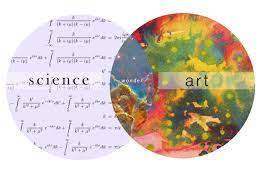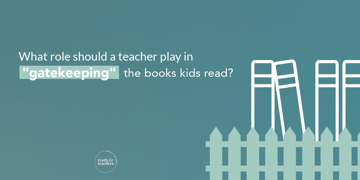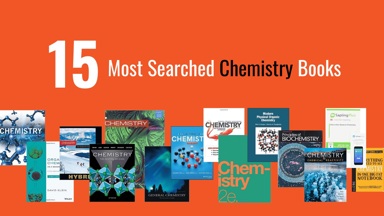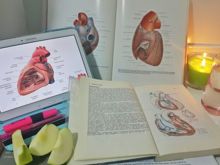Why Do Scientists Love to Read About Art? The Surprising Connection Between Labs and Easels!
- Arts Design
- Engineering and Technology
- Agriculture and Natural Resources
- Arts and Humanities
- Biological Sciences
- Business, Management, and Economics
- Civil Engineering
- Earth Sciences
- Health Sciences
- Humanities and Social Sciences
- Management Sciences
- Environmental Sciences and Natural Resources
-
Medicine
- Anesthesia
- Internal Medicine
- Plastic Surgery and Otorhinolaryngology (ENT)
- Public Health
- Sports Medicine and Rehabilitation
- Basic Medical Sciences
- Behavioral Sciences and Psychology
- Blood and Cancer
- Cardiology and Cardiac Surgery
- Dentistry
- Dermatology
- Emergency
- Gynecology and Obstetrics
- Neurology
- Nursing
- Nutrition
- Ophthalmology
- Orthopedic
- Pathology and Laboratory Sciences
- Pediatrics
- Pharmacy
- Radiology
- Surgery
- Urology
- Veterinary Medicine
- Natural Sciences
- Smart Technologies
- Social Sciences
Why Do Scientists Love to Read About Art

The Hidden Curiosity Behind the Scientist’s White Lab Coat
When we think of a scientist, we usually imagine sterile laboratories, ultra-advanced equipment, and complicated formulas written on whiteboards. But here’s a fun fact you might not know: many of the world’s most brilliant scientists are deeply in love with art, literature, and visual creativity!
Think of Albert Einstein’s love for Mozart’s music or Rishard Feynman’s hobby of painting—there’s a deep and long-standing connection between scientific minds and artistic curiosity.
In this article, we’ll explore why scientists read books about art, what benefits they gain from artistic thinking, and why art-related books have become an essential part of the modern researcher’s mental toolkit. Whether you're building your digital library or just curious, get ready for a colorful and fascinating journey!
Art Sparks Scientific Creativity
Science is usually defined by logic and structure, but in fact, creativity lies at the heart of every major scientific breakthrough. Reading books about art history, visual design, or even the philosophy of aesthetics can be highly inspiring and offer fresh perspectives for solving scientific problems.
For example, a biologist learning about the composition techniques of Renaissance painters might begin to see biological structures in a new light. Or a physicist studying abstract art might discover new ways to visualize quantum mechanics. Pretty cool, right? Let’s keep going.
Recommended Book: Stealing Fire from the Gods – A creative look at the parallels between artistic storytelling and scientific innovation.
Enhances Pattern Recognition and Visualization
Scientists constantly deal with highly complex systems and vast amounts of data. Studying visual arts strengthens their ability to recognize patterns, perform visual analysis, and grasp the bigger picture—skills that are essential in fields like data science, astronomy, and neuroscience.
Just as an art critic finds hidden meanings in fine details, a neuroscientist might analyze subtle changes in brain scans. Art really helps scientists “see the unseen.”
Interdisciplinary Thinking = Innovation
Some of the greatest scientific advancements have come from combining different fields. When a scientist studies art, music, literature, or philosophy, they expand their mental toolbox. This kind of interdisciplinary thinking provides fertile ground for innovation.
For instance, bio-art is a direct result of science and art coming together. Books that explore this intersection provide real-world examples and fascinating case studies.
Recommended Book: The Art of Innovation by IDEO’s Tom Kelley – A must-read on how creativity drives technology and research.
Develops Emotional Intelligence and Human Connection
Ultimately, science exists to serve humanity. But let’s be honest—rigorous scientific training doesn’t always focus on emotions or cultural understanding. We know that reading novels, poetry, or art essays can improve scientists' empathy, emotional intelligence, and communication skills.
In a world rapidly moving toward AI and automation, these human skills are more valuable than ever.
Mental Refresh and Burnout Prevention
Research can be mentally exhausting and emotionally draining. Books about visual arts, abstract thinking, or creative writing offer an excellent way to refresh the mind without stepping away from intellectual engagement.
Many scientists say that studying art or engaging in artistic hobbies helps them avoid burnout, improves their focus, and even boosts memory by activating different areas of the brain.
Art Makes Science More Understandable
Explaining science in simple language is an art in itself! When scientists want to share their discoveries with the public, visual storytelling and artistic metaphors become essential tools.
Books that teach how to visualize data, simplify complex concepts, or use artistic metaphors are among the most popular choices for researchers who communicate with non-technical audiences.
Recommended Books:
- The Visual Display of Quantitative Information by Edward Tufte
- Made to Stick by Chip Heath and Dan Heath – All about how to effectively communicate ideas!
Famous Scientists Who Loved the Arts
Let’s not forget that many of history’s greatest scientists were artists at heart:
- Leonardo da Vinci: Blended anatomy and art in his iconic sketches.
- Einstein: Played the violin and believed imagination was more important than knowledge.
- Santiago Ramón y Cajal: A neuroscientist whose incredible drawings of neurons are now celebrated as works of art.
These stories show us that the scientific mind is often deeply artistic—and that art books can be just as important as scientific journals in their libraries.
Conclusion: The New Generation of Polymath Scientists
The era of narrow specialization is fading. Today’s scientific leaders are becoming polymaths—individuals who combine knowledge from various fields to solve complex global challenges. And art plays a crucial role in this journey.
Whether you’re a scientist in search of fresh inspiration or an art lover wanting to explore the world of science, reading eBooks about art and creativity is a powerful way to expand your perspective.
Share this post:






0 Comments